The Historical Roots
Nestled in Delray Beach, Florida, the Morikami Museum and Japanese Gardens isn't just another tourist spot; it's a living testament to a unique chapter in American history.
The tale begins with Jo Sakai, a young Japanese entrepreneur who, in the early 1900s, led a group of farmers to Florida with the dream of revolutionizing agriculture. They established the Yamato Colony, named after an ancient province in Japan, aiming to cultivate pineapples and other exotic crops.
However, the Yamato Colony faced numerous challenges, including soil unsuitable for their chosen crops and the economic hardships of the era. The colony eventually disbanded, but its spirit lived in George Sukeji Morikami.
A farmer and philanthropist, Morikami donated his land to Palm Beach County to preserve Japanese culture. His generous act led to the establishment of the Morikami Museum and Japanese Gardens, a place where the legacy of the Yamato Colony could be remembered and celebrated.
Architectural Marvels
Stepping into the Morikami Museum is like being transported to a different world. The original building, the Yamato-kan, is modeled after a traditional Japanese villa and offers a glimpse into the daily life of ancient Japan.
But the architectural marvel doesn't stop there. In 1993, a new building was added, designed by esteemed architects Moriyama & Teshima. This structure houses the main museum, which features rotating exhibitions and a permanent collection of over 7,000 Japanese art objects and artifacts.
The design of the main museum building is a blend of modern aesthetics and traditional Japanese elements. Natural materials like wood and stone create a harmonious environment, inviting visitors to explore Japan's rich and diverse culture. It's not just a museum; it's an architectural experience that complements the art it houses.
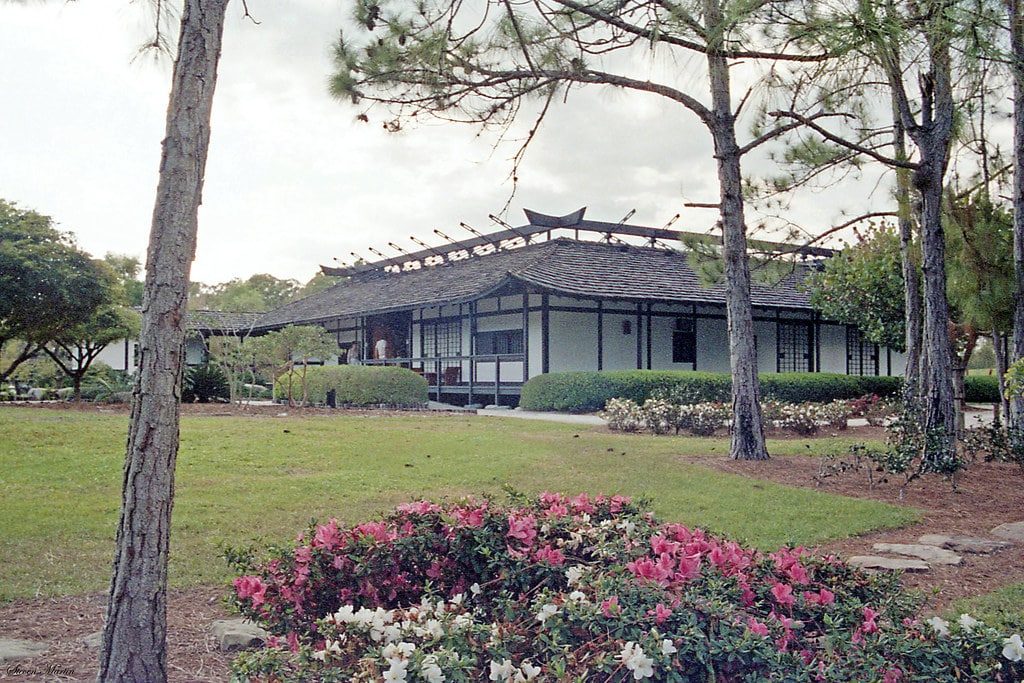
The Gardens - A Walk Through Time
The gardens, known as Roji-en, are a living exhibition that spans 16 acres. Designed by Hoichi Kurisu, the gardens are divided into six distinct sections, each representing a different period in Japanese garden design.
From the early Heian period to the modern era, each garden offers a unique experience, complete with authentic Japanese plants, world-class bonsai collections, and koi-filled lakes.
Walking through these gardens is like taking a journey through time. The meticulous design and attention to detail make it easy to forget that one is in Florida and not in the heart of Japan. The gardens are more than just a visual feast; they are a spiritual retreat where one can find peace and tranquility amidst the hustle and bustle of daily life.
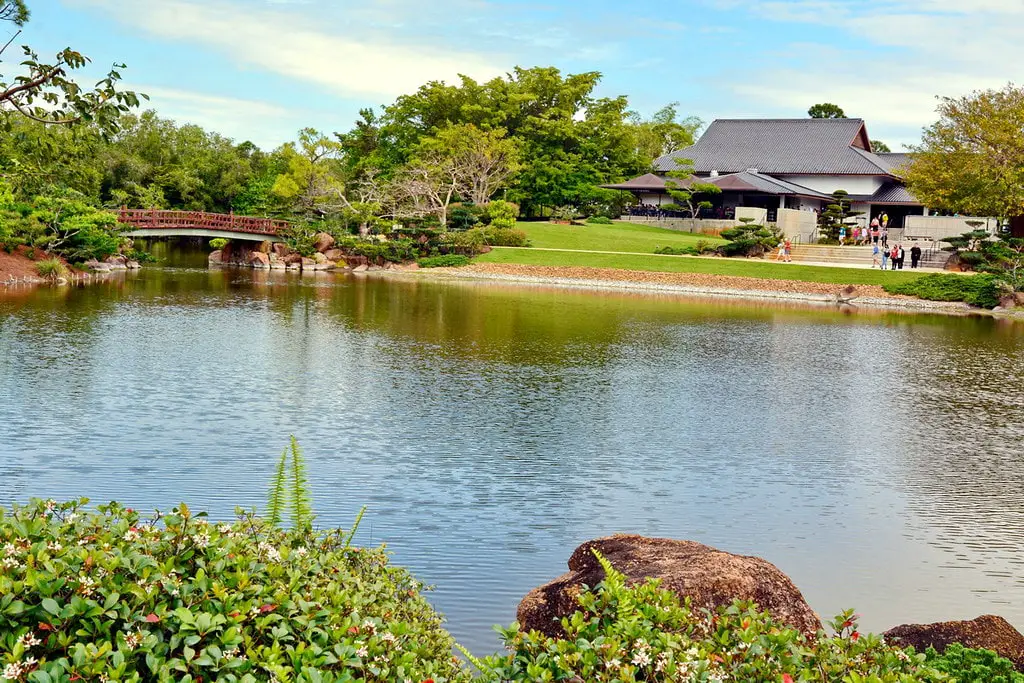
Cultural Programs and Education
The Morikami isn't just a place to look and see; it's a place to engage and learn. The museum offers a variety of cultural programs, including monthly tea ceremonies held in the authentic Seishin-an tea house. These ceremonies are not just for show; they are educational experiences that teach the intricacies of this ancient Japanese art form.
In addition to the tea ceremonies, the museum has a robust educational outreach program. Collaborating with local schools and organizations, the Morikami provides hands-on experiences that bring Japanese culture to life.
From adult workshops to activities for kids, there's something for everyone. For example, the Art of Kokedama workshop instructs participants in the Japanese technique of cultivating plants in balls of soil enveloped in moss, offering an intriguing and interactive method to bond with the natural world.
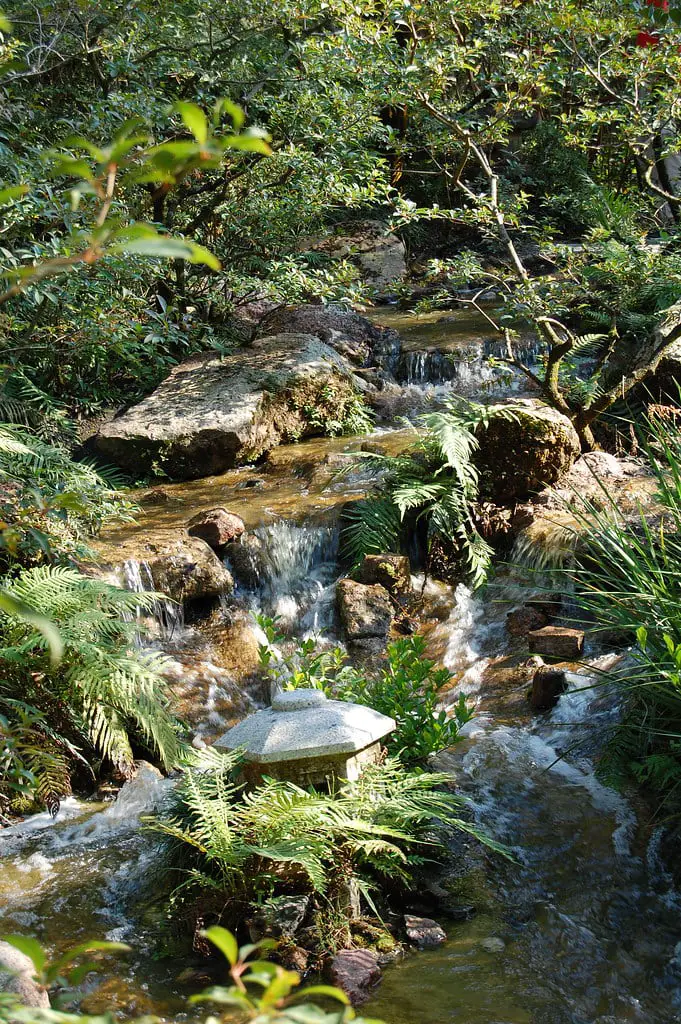
The Cornell Café and Other Amenities
The Cornell Café offers a lakeside dining experience for those looking to extend their visit. Overlooking the gardens, the café serves various Japanese and Asian fusion dishes. It's not just a meal; it's an extension of the cultural journey that the Morikami offers.
Beyond the café, the museum also features a store filled with Japanese goods and crafts, perfect for those looking to take a piece of the experience home. And let's not forget the practical details: the museum is open from Tuesday to Sunday, with varying admission prices for adults, seniors, and children. Memberships are also available for those who wish to make frequent visits.
Latest Updates and News
As of 2023, the museum has several ongoing and upcoming exhibitions and events. One notable exhibition is "Witness to Wartime: The Painted Diary of Takuichi Fujii," which runs until October.
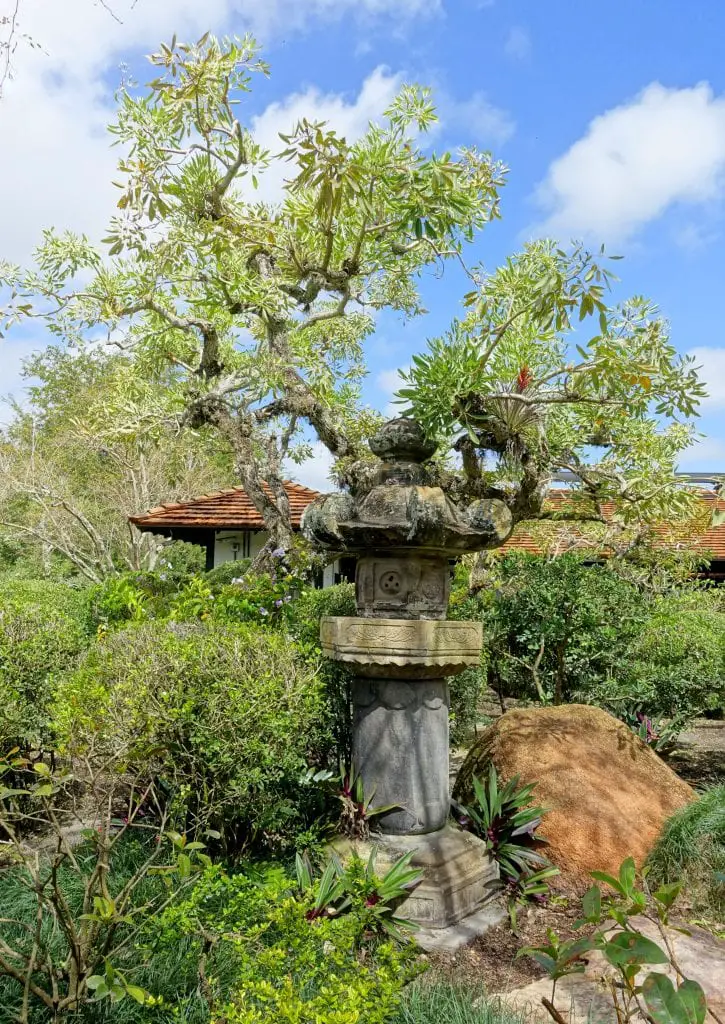
The upcoming exhibition at the Morikami Museum, titled "Stories on the Planet," is set to run from November 4, 2023, to April 4, 2024. Curated by artist Maeda Asagi, this unique showcase features over 30 meticulously crafted sculptures that double as jewelry.
Fashioned from diverse materials, including wood, Plexiglas, resin, enamel, silver, gold, and various stones, Asagi's works are engraved and painted with narratives that explore family and societal themes. Her signature piece, "Stories on the Planet," is a wearable art form that portrays 32 cities in 28 countries through eight removable brooches that combine to form a single necklace.
Asagi's art captures the essence of everyday life, momentous occasions, and global celebrations, offering a poetic and rhythmic design that unifies the world's concurrent and endless stories. The exhibition is presented in collaboration with Mobilia Gallery in Cambridge, Massachusetts.
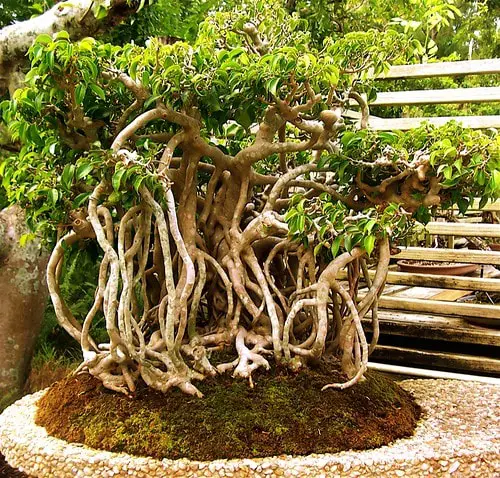
Timeless Allure of Morikami Museum and Japanese Gardens
The Morikami Museum and Japanese Gardens serve as a bridge between two cultures, offering a slice of Japan in the heart of Florida. It's a place that invites exploration, education, and reflection, far removed from the commercial trappings of typical tourist destinations. For the locals of Delray Beach and beyond, the Morikami is not just a place to visit; it's a place to experience, learn, and, most importantly, remember.
